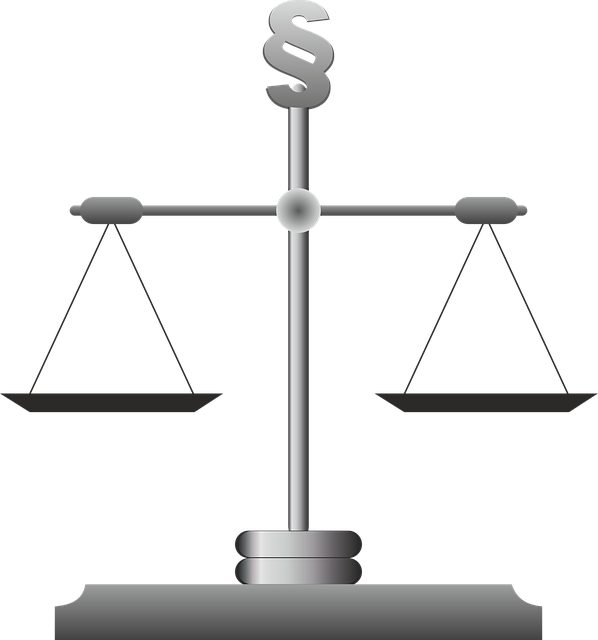Uncovering Scams: Strategies for Defamation Litigation Success

Recognizing securities scams is vital for protecting investments. Scammers pose as brokerages with f…….
In the digital age, where information spreads rapidly, defamation litigation has emerged as a critical aspect of legal practice, particularly online. “Successful Strategies in Defamation Litigation” is an evolving field that requires a nuanced understanding of legal principles, public relations, and emerging technologies. This comprehensive guide aims to explore the various facets of this specialized area, offering insights into strategies that can protect individuals and organizations from harmful reputational damage. Readers will gain a thorough grasp of the topic, from its foundational concepts to cutting-edge approaches, enabling them to navigate defamation cases with confidence.
Defamation litigation involves legal proceedings initiated to protect an individual’s or entity’s reputation when false statements or representations are made, causing harm to their standing in society. ‘Successful strategies’ in this context refer to a combination of legal, communication, and tactical approaches designed to achieve a favorable outcome. These strategies encompass:
The concept of defamation law has deep roots in common law jurisdictions, with early cases dating back centuries. Over time, these laws evolved to address the challenges posed by mass media and, more recently, the digital revolution. The rise of social media and online platforms has created a complex environment where false information can spread rapidly, leading to severe reputational consequences. As a result, successful defamation litigation strategies have become increasingly vital for individuals and businesses alike.
Defamation cases often attract significant media attention, making effective legal representation and public relations management crucial. Successful strategies help navigate this high-stakes environment, ensuring that the focus remains on the merits of the case and the truth.
“Successful Strategies in Defamation Litigation” is a global phenomenon, with varying degrees of influence across different countries. Common law nations, such as the United States, Canada, and the United Kingdom, have well-established defamation laws, while civil law systems, like those in Europe and Asia, have adapted common law principles to suit their legal frameworks.
With globalization and the internet’s reach, cross-border defamation cases are becoming more common. This trend presents unique challenges and opportunities for plaintiffs and defendants, requiring strategic considerations beyond national borders. International treaties and agreements play a role in addressing these issues, but practical strategies remain crucial for successful outcomes.
Defamation litigation can have significant economic implications, affecting both individuals and businesses. The cost of legal representation, potential damages awards, and lost opportunities can be substantial. For instance, a 2021 study revealed that average defamation settlement amounts in the US have increased by 35% over the past decade, reflecting the growing value placed on reputation.
Investor relations are closely tied to corporate reputations. Defamation cases can impact stock prices and investor confidence. Successful litigation strategies that minimize reputational damage may be essential for maintaining positive investor relationships.
Defamation laws serve as a critical component of economic systems, fostering an environment of trust and transparency. Effective defamation litigation strategies contribute to the overall stability of markets by deterring false or malicious statements that could distort economic signals.
The digital age has brought both challenges and opportunities in defamation litigation. Online platforms provide unprecedented access to information but also facilitate rapid dissemination of false content. This evolution requires strategies that leverage technology for evidence gathering, case management, and public relations.
AI-powered tools are revolutionizing legal practice, including defamation cases. These technologies offer advanced search capabilities, natural language processing for document analysis, and predictive analytics to anticipate potential outcomes. For example, AI can assist in identifying relevant online content, analyzing sentiment, and predicting public opinion shifts during a case.
As litigation strategies become more digital, data privacy and security concerns rise. Lawyers must ensure client confidentiality and protect sensitive information while navigating the complexities of electronic discovery and data preservation.
Defamation litigation is governed by intricate legal frameworks that vary globally. Common law jurisdictions have established precedents and statutes defining defamation, while civil law systems have adapted these principles to their legal codes. Key elements often include:
Recent legislative changes reflect the evolving nature of defamation law:
One of the most significant challenges is distinguishing between truthful statements and falsehoods, especially in online spaces where opinions and facts blur. Strategies must account for this complexity, focusing on malicious intent or reckless disregard for truth.
In the US, the First Amendment protections freedom of speech and press, creating a high threshold for proving defamation. Lawyers must navigate these constraints while pursuing valid claims.
Defamation litigation can be lengthy and expensive, often involving extensive discovery processes and complex legal arguments. This may deter some plaintiffs, particularly those with limited resources.
Granting injunctions to prevent defamatory statements can be a double-edged sword. While protecting individuals’ reputations, excessive injunctions might stifle free speech and hinder open debate. Balancing these interests is a critical challenge for the legal system.
A high-profile celebrity faced numerous online accusations of involvement in illicit activities. Their strategic approach involved:
Outcome: The majority of cases were settled out of court, resulting in substantial monetary compensation and a significant victory for the celebrity’s reputation.
A well-known technology company became the target of a smear campaign on social media, damaging its brand image. Their successful strategy included:
Outcome: Within six months, the company’s reputation recovered significantly, leading to increased market share and improved investor sentiment.
Successful strategies in defamation litigation are vital for individuals and organizations seeking to protect their reputations in today’s digital world. By understanding the core components, historical context, and evolving global landscape, legal professionals can offer effective solutions. The future of this field promises exciting developments, from AI-assisted litigation to enhanced international cooperation. Embracing these changes will be key to ensuring robust protection against defamation while fostering a culture of responsible online communication.
Q: How do I know if I have a valid case for defamation?
A: To have a strong case, you must be able to prove that a false statement or representation was made about you, and it caused harm to your reputation. Consult with a legal professional to assess the validity of your claim based on the specific circumstances.
Q: What is the role of free speech in defamation cases?
A: Free speech principles are a cornerstone of many legal systems, especially in countries like the US. However, these rights are not absolute; they often come with limitations when it comes to defamatory statements. Balancing free speech and the right to reputation is a delicate task for the courts.
Q: Can AI be used to detect defamation online?
A: Absolutely. AI-powered tools can analyze vast amounts of data, identify potential defamation, and even predict its impact on public perception. These technologies are becoming increasingly sophisticated and valuable assets in litigation strategies.
Q: What is the average cost of defamation litigation?
A: Costs can vary widely depending on factors like jurisdiction, complexity of the case, and legal fees. A simple case might cost a few thousand dollars, while more complex ones could exceed $100,000. Retainer agreements with lawyers often outline expected expenses.
Q: How can I protect my reputation from online defamation?
A: Proactive steps include monitoring your online presence, establishing clear guidelines for responding to false claims, and building a strong digital footprint that promotes positive content. If faced with defamation, consult legal counsel promptly and consider employing public relations strategies to manage the situation.

Recognizing securities scams is vital for protecting investments. Scammers pose as brokerages with f…….

Successful strategies in defamation litigation for RF finance law firms involve defining key princip…….

Successful strategies in defamation litigation against fraudulent financial schemes involve separati…….

Defamation law demands strategic navigation for criminal defense attorneys. Key strategies include m…….

Successful strategies in defamation litigation include understanding key definitions and elements to…….

Mail wire fraud, involving impersonation and manipulation, demands proactive vigilance to recognize…….

RF Regulatory Agencies oversee RF technology, ensuring safety and managing spectrum usage through in…….

In corporate defamation lawsuits, successful strategies include presenting concrete evidence of mali…….

Successful strategies in defamation litigation combat mail wire fraud by combining heightened securi…….